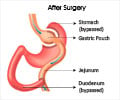
‘A postoperative patient aged 60 with a spouse or cohabiting partner, high educational attainment, and high income has a median life expectancy five years longer than a corresponding person with no live-in partner, a low education level, and low income.’
Tweet it Now
The study, published in the Journal of the American Heart Association and funded by the Swedish Heart-Lung Foundation, is based on data on 112,000 women and men who underwent coronary artery bypass grafting (CABG) in Sweden from 1992 to 2015. Data were taken from the Swedish Heart Surgery Registry, which is part of the SWEDEHEART (Swedish Web system for Enhancement and Development of Evidencebased Care in Heart Disease Evaluated According to Recommended Therapies) quality registry, and from the Swedish Cause of Death Register, the Swedish National Inpatient Register (IPR), and the Longitudinal Integration Database for Health Insurance and Labor Market Studies register (LISA).
Compliance with recommendations important
The research shows that various factors are associated, both jointly and individually, with differences in post-CABG life expectancy, irrespective of sex and age.
Susanne Nielsen, who belongs to Professor Anders Jeppsson's research group, stresses the importance of everyone, after CABG, taking the medication prescribed.
Advertisement
Hard to take it all in
Advertisement
Source-Eurekalert









